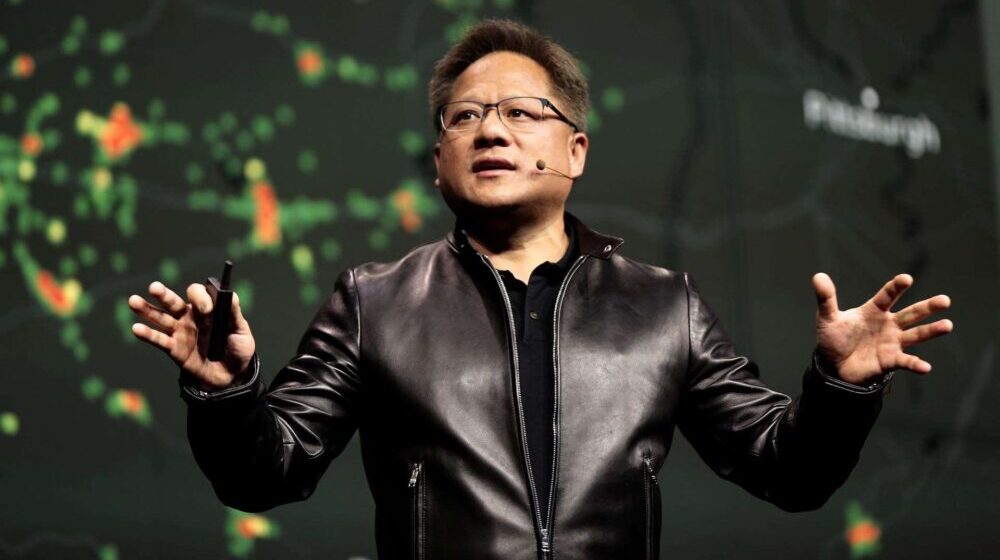Artificial Intelligence (AI) will be able to catch up with humans in the next 5 years, claims Nvidia CEO Jensen Huang. The ambitious predicition is not hard to believe with the rapid growth of AI we have been seeing lately, kicked off by OpenAI’s ChatGPT last year.
Huang made an appearance at the The New York Times’ annual DealBook Summit and talked about artificial general intelligence (AGI), which is defined as AI that is able to perform at the same level of human intelligence. It is able to complete tests in a “fairly competitive” manner against humans. Huang believes that “within the next five years, you’re going to see, obviously, AIs that can achieve those tests.”
Nvidia is one of the biggest players in the AI industry, with nearly every major Large Language Model (LLM), including ChatGPT and others, relying on the American chipmaker for its AI powering GPUs. This includes the H100 Tensor Core GPU and a number of others, all of which are in extremely high demand in the industry, which has turned Nvidia into a trillion dollar company recently.
The American hardware maker’s revenue tripled in its third finanical quarter and its net income hit $9.24 billion, a massive jump from the $680 million figure last year.
During Wednesday’s interview, Huang reminisced about delivering what he referred to as “the world’s inaugural AI supercomputer” to OpenAI. This remarkable event transpired when Elon Musk, one of the AI project’s co-founders who had left in 2018, encountered Huang discussing the device at a conference.
Huang recalled, “Elon saw it, and he goes, ‘I want one of those’ — he told me about OpenAI. I delivered the world’s first AI supercomputer to OpenAI on that day.”
He also commented on the recent chaos at OpenAI which had its CEO abruptly removed from the company and then return within 5 days of his ouster.
He said: “I’m happy that they’re settled, and I hope they’re settled — it’s a really great team. It also brings to mind the importance of corporate governance. Nvidia is here 30 years after our founding, we’ve gone through a lot of adversity. If we didn’t set up our company properly, who knows what would have been.”
According to Huang, a primary factor that indicates the tech industry is still several years away from achieving AGI is that, while machine learning excels in areas such as recognition and perception, it still lacks the capability to execute multistep reasoning—a crucial objective for both companies and researchers.






